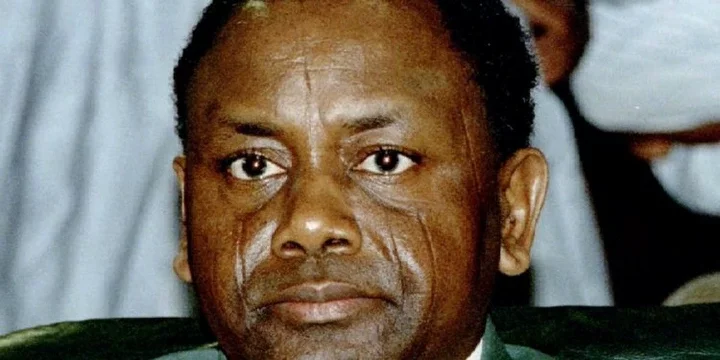
So, you're curious to learn about Nigeria's long era of military rule? Well, strap in because you're in for over three decades of coups, countercoups, and dictators who were often as eccentric as they were brutal. From 1966 to 1999, Nigeria was ruled by a succession of military juntas that took power through force and ruled by decree. It was a turbulent time that saw Nigeria transition from a promising young democracy to a repressive military regime and back again.
Get ready to meet characters like the boastful General Yakubu Gowon, the eccentric Murtala Mohammed, and the infamous Sani Abacha, who stole billions and killed dissenters. By the end, you'll have a new appreciation for how military rule shaped modern Nigeria for better and for worse. This is a history as colorful as it is troubling, so brace yourself for a wild ride.
Definition of Military Rule
Military rule is defined as the governance of a country by military authorities. A military dictatorship, often known as a military regime, is a form of dictatorship in which one or more military officers hold control. Military dictatorships are led by either a single military dictator, known as a strongman or a council of military officials, known as a military junta. In Nigeria, military rule lasted from 1966 to 1999.
Background on Military Rule in Nigeria
Nigeria's military dictatorship began with the 1966 coup d'état, which was organized and carried out by a group of revolutionary Nigerian nationalist officers who began as a small rebel military cell led by Emmanuel Ifeajuna. Major Chukwuma Kaduna Nzeogwu led the coup attempt, which included five other army majors: Timothy Onwuatuegwu, Chris Anuforo, Don Okafor, Adewale Ademoyega, and Humphrey Chukwuka. It was a covert movement of junior officers from 1960 until 1966. The scheme was supported by left-wing intellectuals who opposed conservative aspects of society, such as the traditional establishment of Northern Nigeria, and aimed to overthrow the First Nigerian Republic.
The military regimes were characterized by human rights abuses, corruption, and the suppression of dissent. However, some leaders also invested in infrastructure and economic growth. Military rule shaped Nigeria's political institutions and continues to influence governance today. Overall, this era disrupted Nigeria's democratic process and led to lost years of political development.
Key Events Leading to Military Rule
The path to military rule in Nigeria was paved with political instability and ethnic tensions following independence in 1960. Two key events led to the first military coup in 1966:
The 1964 Federal Elections
The 1964 elections highlighted the ethnic divisions in Nigeria. The two main political parties represented the interests of the major ethnic groups. The Northern People's Congress (NPC) represented the Hausa-Fulani in the North, while the Action Group (AG) represented the Yoruba in the West. When the NPC won the elections, the AG accused them of rigging the results, leading to a political crisis and unrest.
The Census Crisis of 1962-63
The census was meant to determine how parliamentary seats would be allocated, but the results were controversial. The population headcount found that the North had a higher population than the South, but Southerners argued the results were manipulated to favor the North. The crisis intensified ethnic tensions and further undermined trust in the democratic system.
On January 15, 1966, a group of army officers staged a coup d'etat, overthrowing the civilian government. The coup leaders, mostly Igbo from the South, cited the dysfunctional democratic system and ethnic conflict as their motivation. However, the coup led to the killings of many Northern leaders and a countercoup by Northern officers in July 1966. This coup marked the start of military rule, which lasted until 1999.
The events leading up to 1966 showed that Nigeria's young democracy was fragile, built on a precariously balanced system of power sharing between ethnic groups. Political disputes and ethnic tensions severely weakened public faith in the democratic system, creating an opportunity for the military to take power in the name of restoring order and unity. However, military rule ultimately exacerbated ethnic divisions and Nigeria's path to democracy was long and difficult.
Factors that Led to Military Rule in Nigeria?
Several factors led to military intervention in Nigeria:
Political instability and violence: The First Republic was marked by political violence and instability across Nigeria. The Western Region crisis of 1962 and the federal elections crisis of 1964 led to a breakdown of law and order. The military took over to restore stability.
Corruption and abuse of power: Politicians were seen as corrupt and power-hungry. They used political positions to enrich themselves rather than serve the people. The military claimed they wanted to rid Nigeria of corruption.
Regional and ethnic tensions: There were growing tensions between the Northern, Western, and Eastern regions, which threatened national unity. The military claimed they wanted to unite the country.
Weak democratic institutions: Nigeria's democratic institutions were still young and weak. The politicians were seen as inexperienced and unable to govern properly. The military argued they were stepping in to save the nation from collapse.
Foreign influence: Some analysts argue that Western powers, especially Britain, supported military rule in Nigeria to protect their economic and political interests. The West found military rulers easier to manipulate than democratically elected leaders.
Opportunity: Some ambitious military officers took advantage of the situation to seize power for their gains. They were motivated by the opportunities of political power and wealth, not necessarily national interest.
In summary, military rule was a product of a combination of several factors, including political crisis, corruption, regional tensions, foreign influence, and ambition. The military justified their intervention on the grounds of restoring order, fighting corruption, and uniting the country. But in the end, military rule led to even more instability, human rights abuses, and underdevelopment of Nigeria.
Military Regimes From 1966-1999
The military ruled Nigeria for 33 years, from 1966 to 1999. During this time, the country was led by various military dictators who took power through coups d'etat.
General Johnson Aguiyi-Ironsi (1966)
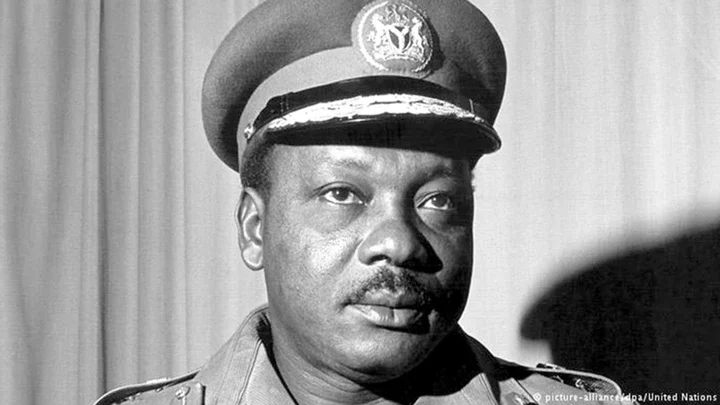
General Johnson Aguiyi-Ironsi first took control of Nigeria through the January 15, 1966, military coup, overthrowing the civilian government. However, his rule only lasted 6 months before he was overthrown and killed.
He ruled from January 16, 1966, until July 29, 1966, when he was assassinated by a rebellious group of Northern Nigerian officers and men led by Major Murtala Mohammed and including Captain Theophilus Danjuma, Lieutenant Muhammadu Buhari, Lieutenant Ibrahim Babangida, and Lieutenant Sani Abacha in a revolt against his government known as the July Countercoup.
General Yakubu Gowon (1966-1975)
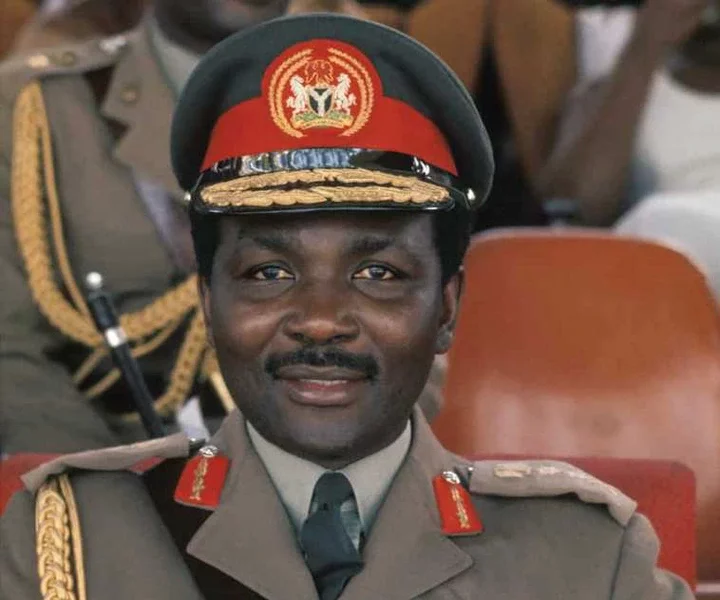
Yakubu Dan-Yumma "Jack" Gowon GCFR, born October 19, 1934, is a retired Nigerian army general and military leader. Lt. Col. Yakubu Gowon took power after the countercoup against Aguiyi-Ironsi. He led Nigeria during the Biafran Civil War when the eastern region attempted to secede. As Nigeria's head of state, Gowon presided over a contentious civil war and delivered the famous "no victor, no vanquished" speech at the war's end to promote reconciliation and healing.
The Nigerian Civil War is regarded as one of the most deadly in modern history, with some charging Gowon with crimes against humanity and genocide. Gowon argues that he did nothing wrong throughout the conflict and that his leadership saved the country.
Gowon was Nigeria's longest-serving head of state and ruled for nearly nine years before being overthrown in a coup d'état by Brigadier Murtala Mohammed in 1975.
General Murtala Muhammed (1975-1976)
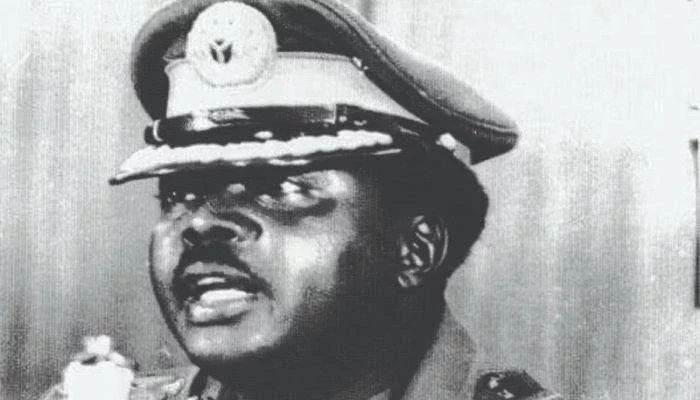
Murtala Ramat Muhammed GCFR (November 8, 1938 - February 13, 1976) was a Nigerian general who led the 1966 Nigerian counter coup that overthrew the Johnson Aguiyi-Ironsi military regime and featured prominently during the Nigerian Civil War and then ruled Nigeria from July 29, 1975, until his assassination on February 13, 1976. This time in Nigerian history, from the Northern countercoup triumph to Murtala's death, is widely seen as the institutionalization of the military in politics.
General Murtala Muhammed only ruled for 6 months before being assassinated in an unsuccessful coup attempt led by Lt. Col. Buka Suka Dimka. During his brief rule, Muhammed initiated a transition to democracy.
General Olusegun Obasanjo (1976-1979)
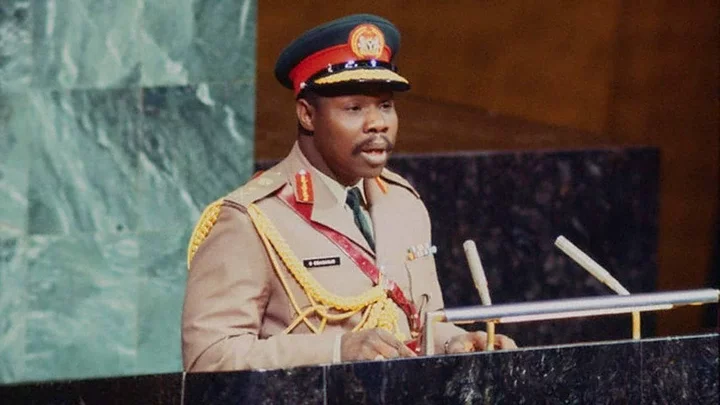
Following the assassination of military ruler General Murtala Muhammed in 1976, President Obasanjo was catapulted into power in Nigeria. As deputy, he took over as head of state, but he vowed to restore civilian rule in Nigeria. His administration established the Constitution Drafting Committee and the Constituent Assembly, as well as the N20 currency and "Operation Feed the Nation," which evolved into the "Green Revolution." Under President Obasanjo, the military relinquished control in 1979 and turned it over to a democratically elected president, effectively returning Nigeria to civilian administration. He was the first African head of state and government to peacefully and freely hand over power to a democratically elected government. The Supreme Military Council was formally dissolved when Obasanjo handed power to the elected Shehu Shagari, ending the military regime and establishing the Nigerian Second Republic.
President Obasanjo reclaimed power in Nigeria from 1999 to 2007 after winning two civilian elections 20 years after he relinquished power to civilian rule.
Muhammadu Buhari (1983-1985)
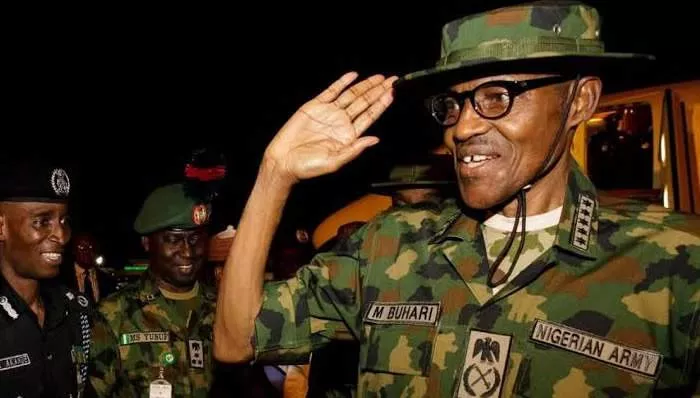
The Second Republic of Nigeria was ousted in a coup in 1983. Muhammadu Buhari was installed as Head of State and Commander-in-Chief of the Armed Forces by a new Supreme Military Council of Nigeria. Overthrowing Shagari's civilian government.
Buhari's regime is known for its "War Against Indiscipline" and economic crisis. General Ibrahim Babangida overthrew him in a bloodless coup after just 2 years in power.
Ibrahim Babangida (1985-1993)
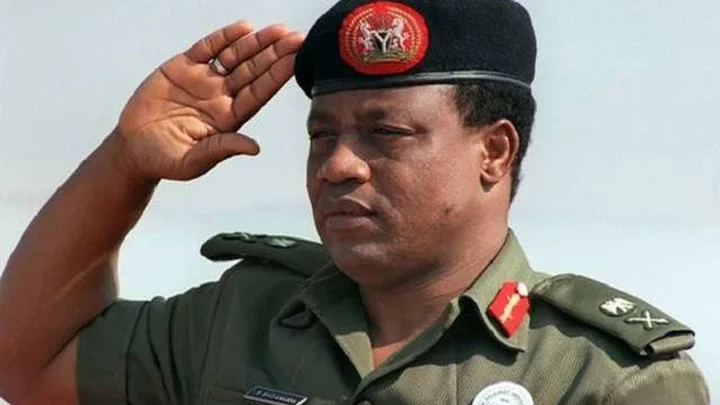
Babangida took power in a bloodless coup, overthrowing Muhammadu Buhari. Known as "IBB", Babangida annulled the June 12, 1993 elections, considered Nigeria's freest and fairest. He moved the capital from Lagos to Abuja. His regime was marked by human rights violations and corruption.
His reign was the longest in peacetime, and his government characterized the twentieth-century military dictatorships. When he took office, Babangida pledged a return to democracy, but he controlled Nigeria for eight years before handing power to interim Head of State Ernest Shonekan in 1993.
Sani Abacha (1993-1998)
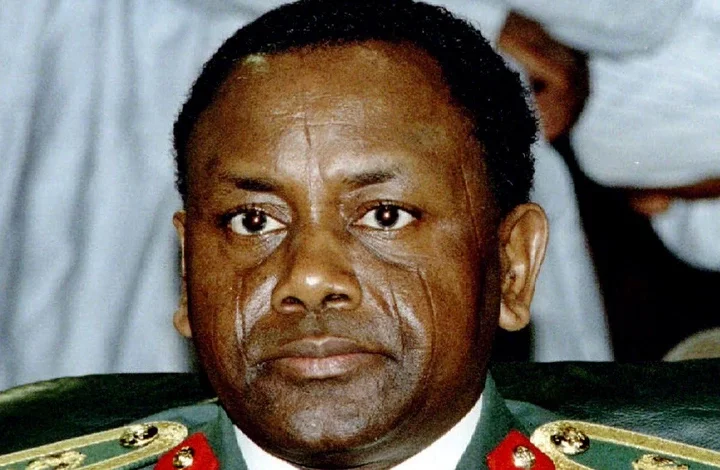
Abacha seized power in a coup, dismissing the interim government of Ernest Shonekan. His oppressive regime was notorious for human rights abuses and the execution of activist Ken Saro-Wiwa. Nigeria became isolated internationally. Abacha reportedly stole billions of dollars from the treasury. He died suddenly in 1998, with General Abdulsalami Abubakar taking over.
Abdulsalami Abubakar (1998-1999)
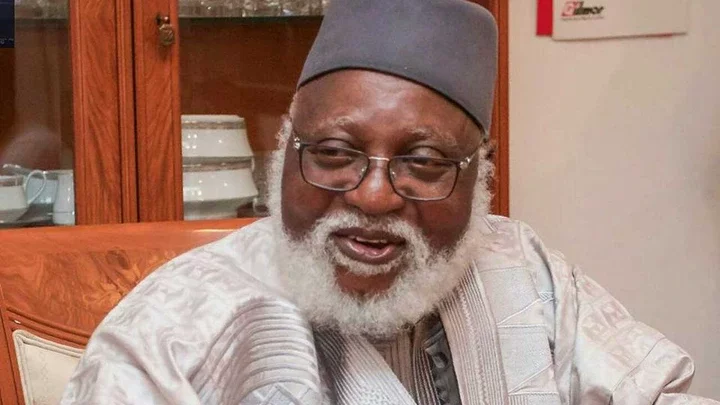
Following Abacha's death in 1998, General Abdulsalami Abubakar took over and reigned until Olusgun OBasanj was re-elected president in 1999, effectively ending the junta and establishing the Fourth Nigerian Republic.
These military leaders shaped Nigeria's history for over 30 years before the transition to democracy began in 1999. The succession of military dictators caused political instability and human rights abuses. However, the later leaders Obasanjo and Gowon made efforts to return Nigeria to democracy, overseeing the first elections in decades. Overall, military rule shaped Nigeria's political development for better and for worse.
Heads of State of the Military Regimes
The military ruled Nigeria for 33 years, from 1966 to 1999. During this time, the country was led by 8 different military heads of state.
Impact of Prolonged Military Rule on Nigeria
Military rule in Nigeria lasted for 33 years, from 1966 to 1999. This prolonged period of military dictatorship had some major impacts on the country:
Suppression of Civil Rights and Liberties
The military regimes flagrantly violated the fundamental human rights and civil liberties of Nigerians. Things like freedom of speech, association, and press were severely curtailed. The military dictators ruled with an iron fist and brutally crushed any form of dissent or opposition.
Weakening of Democratic Institutions
The military rule systematically weakened democratic institutions like the legislature and judiciary. The military leaders were governed by decrees and ran a totalitarian government. There were no meaningful checks and balances.
Economic Mismanagement
The military regimes failed to manage the economy effectively. There was a lack of transparency and accountability, which led to high levels of corruption. Most of the economic policies and programs were poorly conceived and implemented. This resulted in low productivity, high unemployment, and a poor standard of living for most Nigerians.
Ethnic Tensions and Conflicts
The military rule exacerbated ethnic and religious tensions in the country. There were allegations of ethnic bias, marginalization, and domination of people from certain ethnic groups. This led to conflicts like the Maitatsine religious uprisings, Tiv-Jukun clashes, etc.
Brain Drain
The harsh economic conditions, human rights violations, insecurity, and lack of opportunities forced many educated and skilled Nigerians to emigrate to other countries. This resulted in a massive brain drain with detrimental effects on the economy.
International Isolation
The military regimes were often isolated from the international community. Nigeria was suspended or expelled from international organizations like the Commonwealth due to human rights abuses and undemocratic rule. The country lost prestige and influence on the global stage.
Culture of Violence
The frequent use of violence and brutal force by the military to deal with conflicts and opposition fostered a culture where violence and militarism were glorified. This has had long-lasting impacts on society.
Lack of Continuity in Government Policies
There were frequent coups and changes in military leadership. Each new regime discarded the policies and programs of the previous one. This lack of continuity hampered development.
Transition Back to Democratic Rule in 1999
The transition from military to democratic rule in Nigeria was a long process that spanned over 30 years. Military leaders had ruled Nigeria since 1966, but in 1999, Nigeria finally transitioned back to democratic rule.
In January 1993, Babangida replaced the ruling military junta, the AFRC, with the National Defence and Security Council as the regime's top decision-making organ. He also appointed Ernest Shonekan as Head of the Transitional Council and de facto Head of Government. At the time, the transitional council was intended to be the final phase before handing power to an elected democratic leader in the 1993 presidential election.
On June 12, 1993, the presidential election was ultimately held. The results, though not officially certified by the National Electoral Commission, showed that Moshood Abiola and Babagana Kingibe of the Social Democratic Party (SDP) defeated Bashir Tofa and Sylvester Ugoh of the National Republican Convention (NRC) with more than over 2.3 million votes in the 1993 presidential election.
General Babangida, the military ruler of the state, later nullified the elections due to electoral irregularities. The annulment sparked huge protests and political upheaval in Abiola's heartland of the South West, where many believed Babangida had ulterior motives and didn't want to cede power to Moshood Abiola, a Yoruba businessman. Babangida later confessed that the polls were cancelled for national security reasons, which he did not identify.
The prolonged June 12 crisis led to General Babangida's resignation in August 1993. Babangida signed a decree establishing the Interim National Government, led by Ernest Shonekan. As interim president, Shonekan initially appointed Abiola as his Vice President, but Abiola refused to recognize the interim administration; the conflict lasted months, culminating in General Sani Abacha's takeover of power. At the height of the crisis, Babangida declared, "If I am sleeping and I hear the Yorubas beating the drums of war, I will go back to sleep."
Sani Abacha took power in a bloodless coup later that year. Abacha's brutal military regime lasted until he died in 1998. Following Abacha's death, General Abdulsalami Abubakar took over and began the transition to democracy. One month after the death of General Abacha, MKO Abiola, the presumed winner of the 1993 presidential elections, died in detention.
In 1999, Olusegun Obasanjo was elected president in Nigeria's first successful transition from military to civilian rule. Obasanjo established a new constitution and tackled government corruption during his two terms as president from 1999 to 2007. However, the transition was not without challenges. The military rulers were reluctant to give up power, and there were conflicts over power sharing and resource control between ethnic groups. There were also many institutional challenges in moving from an authoritarian military system to a democratic civilian system of government.
Nigeria's return to democracy in 1999 was a pivotal moment that marked the end of nearly 33 years of military rule. Despite a flawed election, the transition of power from the military regime to the democratically-elected Obasanjo administration represented an important first step toward democratic governance in Nigeria. More than 20 years later, Nigeria's democracy faces many challenges but continues its gradual progress.
Conclusion
So that's the story of over 30 years of military rule in Nigeria. It was a tumultuous time that still impacts the country today. While the coups and countercoups made for an unstable political system, life went on for everyday Nigerians. They found ways to adapt to ever-changing circumstances, all while holding onto a shared sense of national identity. Though the return to democracy in 1999 was a welcome change, Nigeria still grapples with the legacy of its military past. But if there's one thing clear from this history, it's that Nigeria's spirit of resilience lives on.

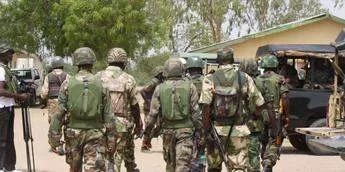
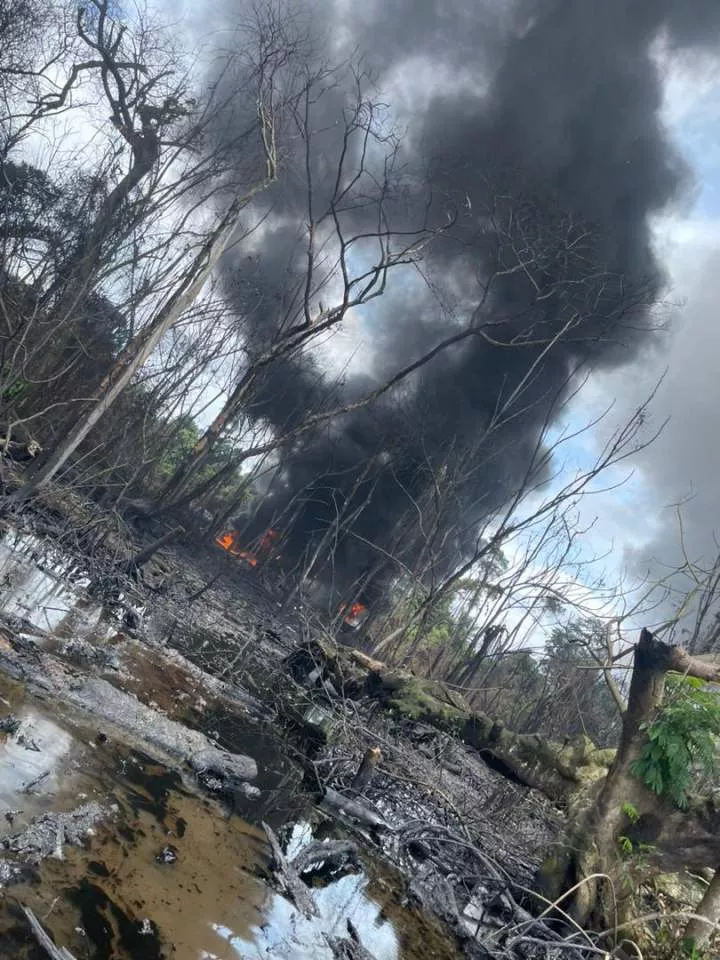
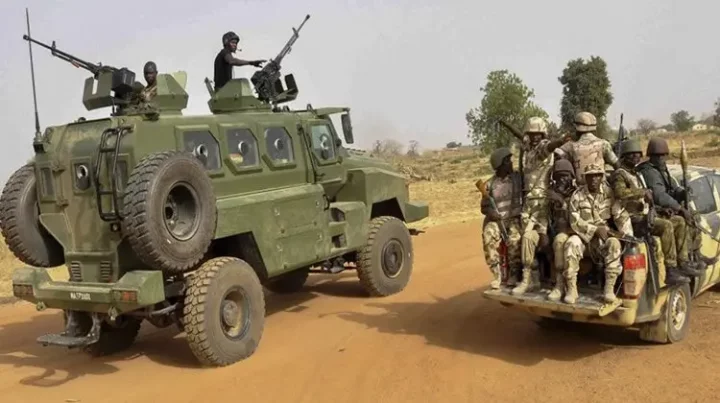
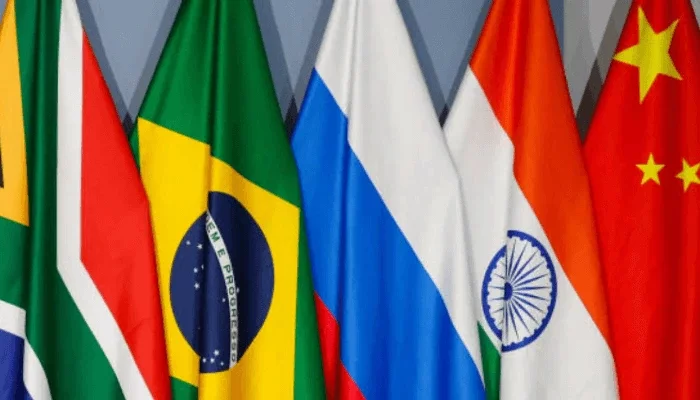
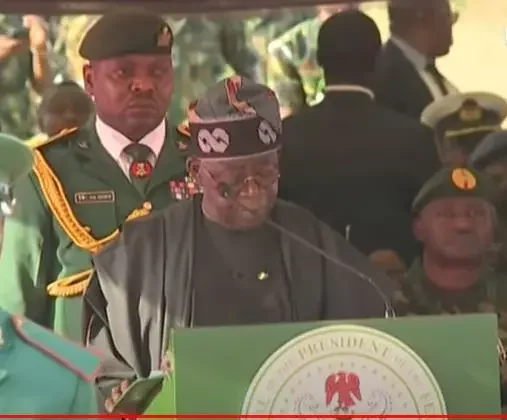
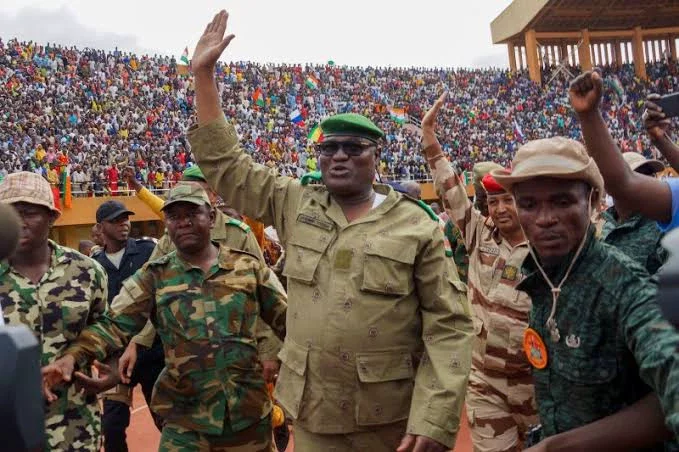
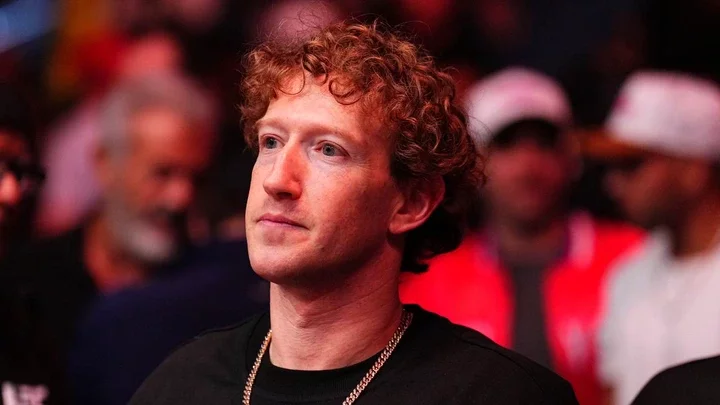
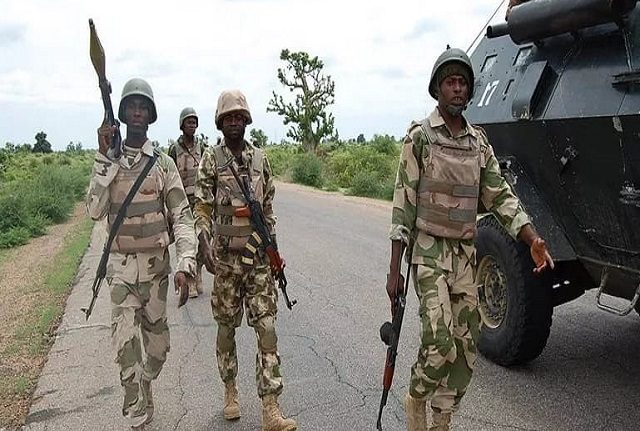







Comments